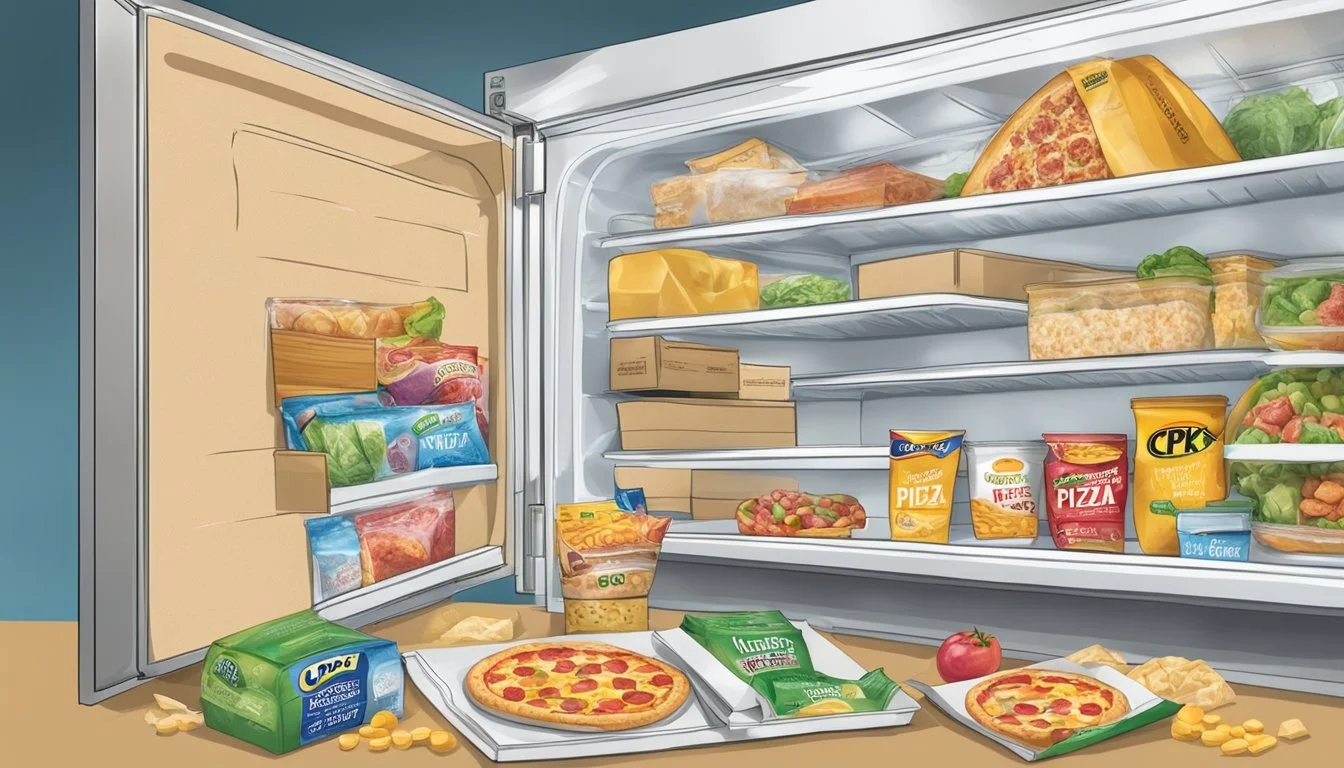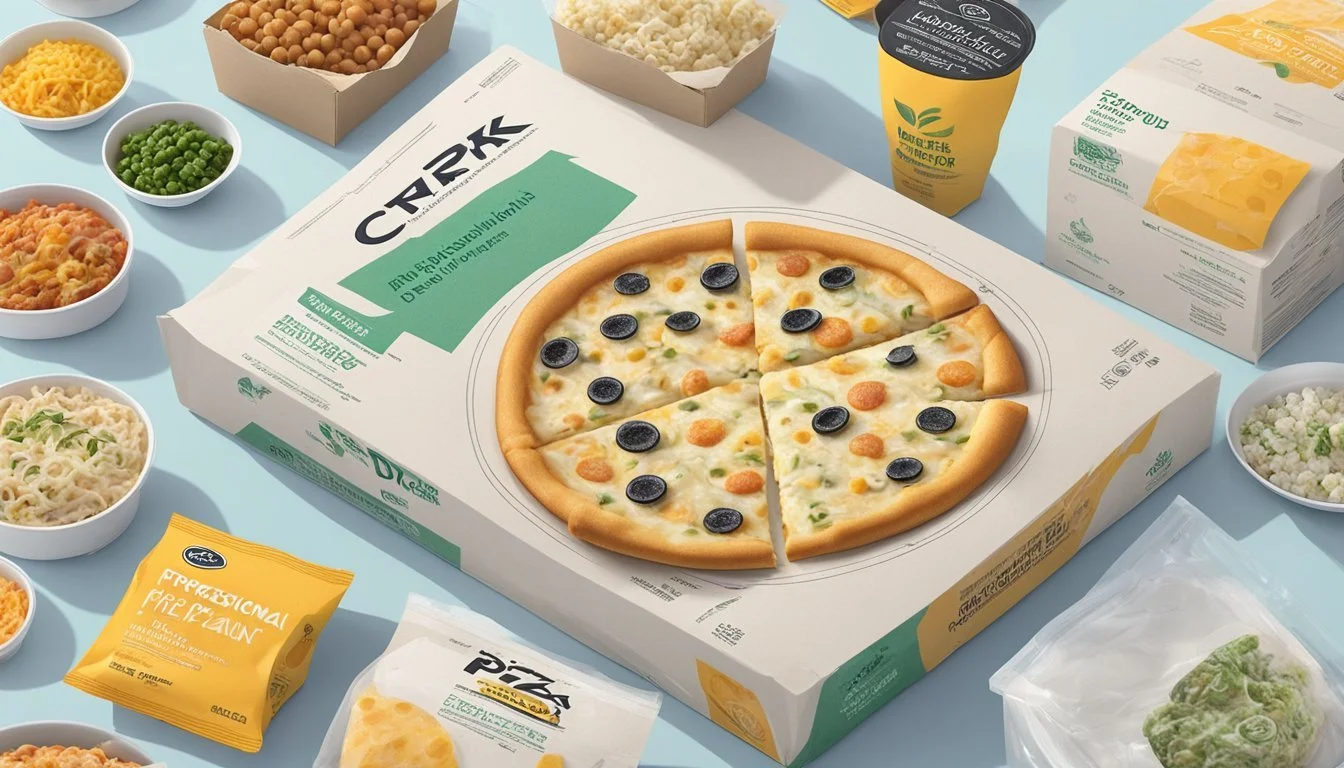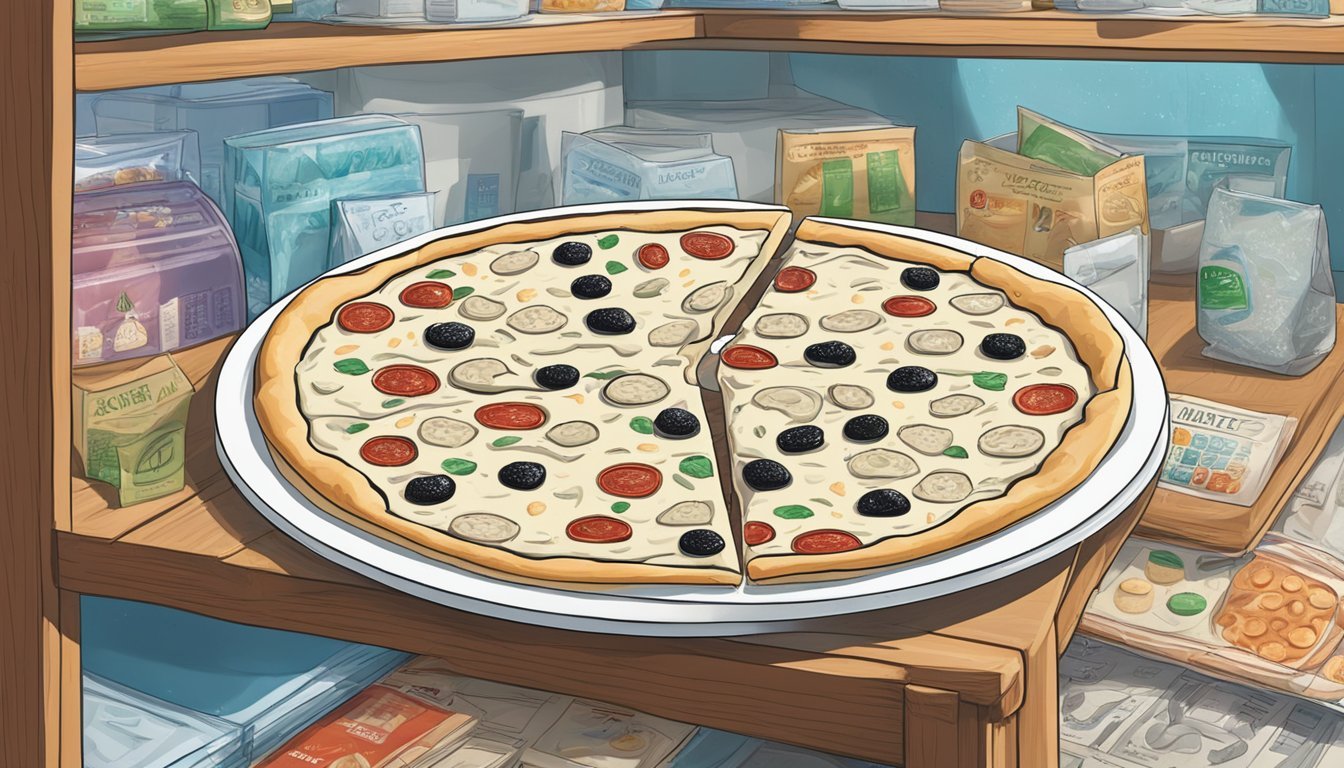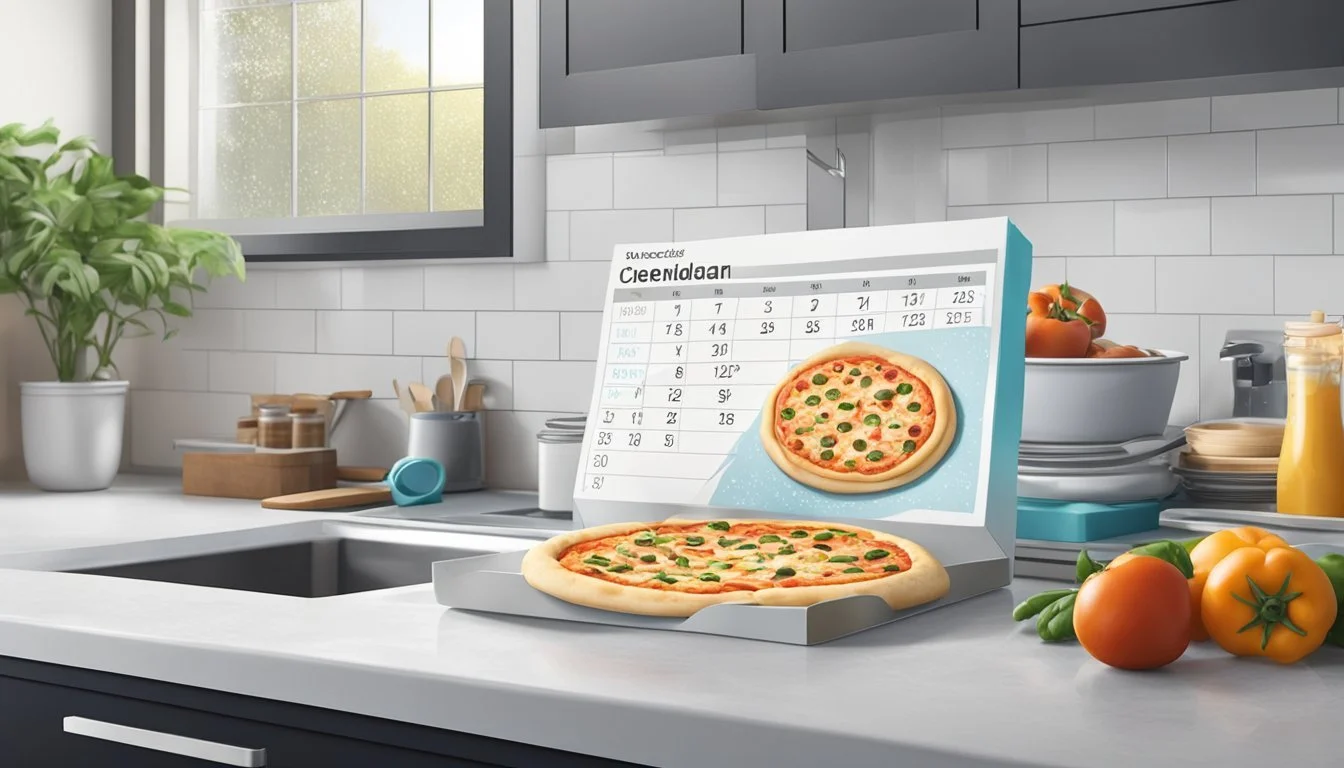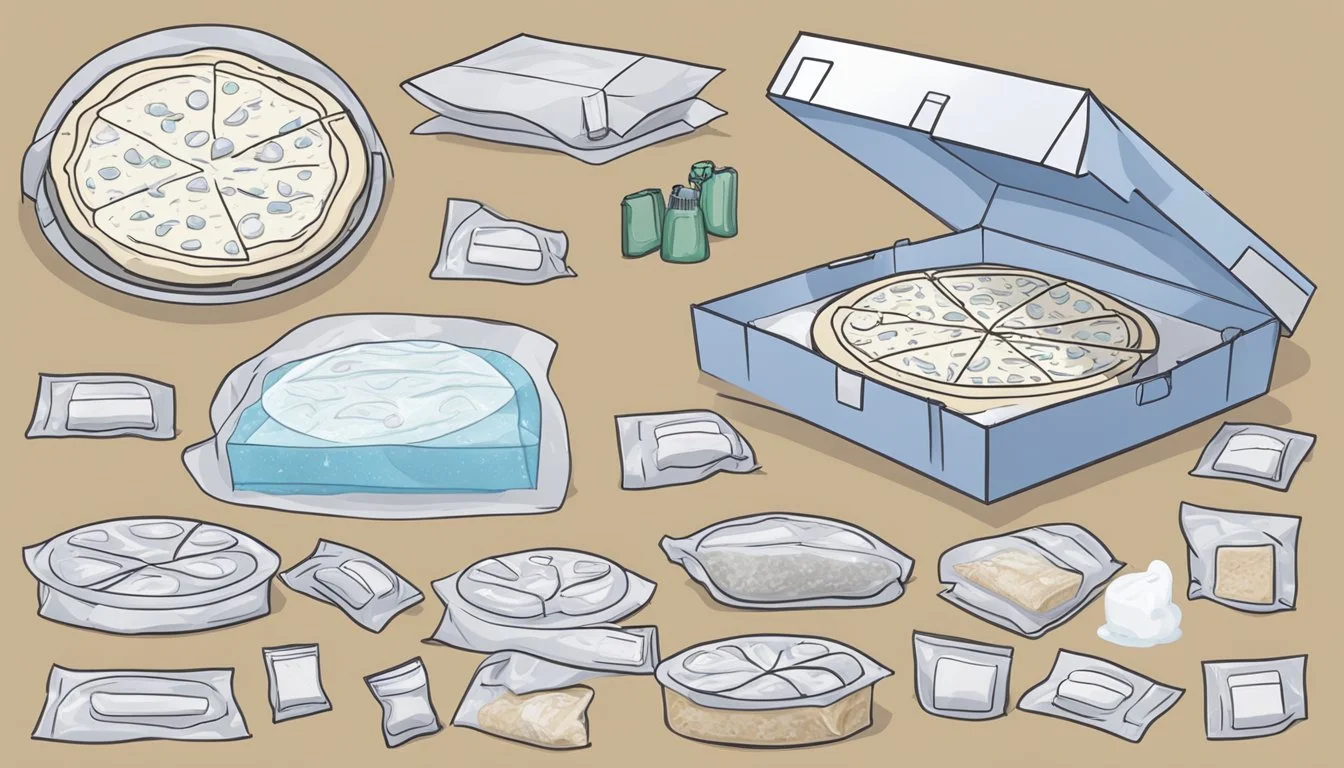How Long Does CPK Frozen White Pizza Last?
Storage Tips and Shelf Life Explained
Frozen white pizza from California Pizza Kitchen (CPK) offers a convenient and delicious option for pizza lovers. When stored properly, the CPK frozen white pizza can last in the freezer for 5 to 12 months, maintaining its taste and texture. Proper storage, ideally in a consistently cold freezer, ensures that the pizza retains its quality and remains safe to eat even beyond the indicated expiration date.
The white pizza from CPK, featuring a blend of spinach, garlic, ricotta, mozzarella, Parmesan, Romano, and Asiago cheeses on a preservative-free crust, is crafted to deliver restaurant-quality flavor. While its shelf life might extend past 12 months, it is recommended to consume it within the optimal time frame to enjoy its best taste and texture. Freezer burn may occur if the pizza is stored for too long, impacting its overall quality.
Given the busy lives many lead today, having a reliable and tasty frozen pizza option like CPK’s white pizza can be a real lifesaver. For those nights when you crave something quick yet satisfying, knowing how long your frozen pizza can last helps you plan your meals more effectively.
Understanding the Fundamentals of Frozen Pizza
Frozen pizza can be a convenient and quick meal option, but it requires proper handling and storage to maintain its quality and safety.
What Constitutes CPK Frozen White Pizza
CPK's Frozen White Pizza is made with a combination of enriched wheat flour and low-moisture part-skim mozzarella cheese. It often includes a blend of spinach and garlic, along with other cheeses like ricotta, parmesan, and asiago.
The pizza is assembled and frozen to preserve flavor and texture. Quality ingredients are key for maintaining taste after freezing. Understanding these components helps in recognizing the necessity of proper storage.
Importance of Proper Storage Conditions
Proper storage conditions are crucial for extending the life of frozen pizza. Temperature management is vital; keep the pizza at 0 degrees Fahrenheit or lower. This helps prevent freezer burn, which occurs when air reaches the food, causing it to dehydrate.
Using an air-tight container can provide extra protection. Ensure the packaging is sealed tightly. Store the pizza away from fluctuating temperatures near freezer doors to avoid inconsistent chilled environments.
Proper storage ensures the pizza remains enjoyable up to its expiration date and slightly beyond. Following these steps is crucial for preserving quality and safety.
Evaluating the Shelf Life and Expiration
The shelf life of CPK frozen white pizza depends on various factors, such as packaging and storage conditions. Understanding expiration and best by dates is crucial to ensure food quality.
Reading and Interpreting Expiration Dates
Expiration dates and best by dates are critical for determining how long CPK frozen white pizza will retain its peak quality. Generally, frozen pizzas have an expiration date printed on the packaging, typically 18 months from the manufacturing date.
These dates help consumers assess when the product might start to lose its optimal taste and texture. It is important to store the pizza at a constant freezing temperature to maintain its stated quality until the best by date.
Determining the Optimal Shelf Life
The optimal shelf life of CPK frozen white pizza usually extends up to 18 months if stored correctly. While it may still be safe to eat beyond this period, the pizza's taste and texture can degrade.
Freezer burn is a common issue that can affect the pizza's texture and flavor. Proper storage techniques, such as keeping the pizza in its original packaging and avoiding temperature fluctuations, help in preserving its quality.
By following these guidelines, one can ensure the CPK frozen white pizza remains enjoyable to eat within its recommended shelf life.
Safe Consumption Practices
Ensuring the safety of your frozen CPK white pizza primarily involves recognizing signs of spoilage and taking steps to prevent food poisoning. These measures can help maintain the quality and safety of your pizza.
Identifying Signs that Pizza Has Gone Bad
Several indicators can signal that a frozen pizza is no longer safe to consume. Look for mold, which may appear as fuzzy spots of various colors. Odor is another significant sign; a sour or off smell suggests bacterial growth. Texture changes like an unusual slimy film are also warning signs.
Visual inspection before and after cooking can prevent consumption of spoiled items. If any of these signs are present, it is best to discard the pizza immediately to avoid health risks.
Preventing Food Poisoning from Expired Frozen Items
Proper storage is crucial in preventing foodborne illnesses. Keep frozen pizza at 0°F (-18°C) or lower to halt bacterial growth. Ensure the pizza is well-wrapped to minimize exposure to air and potential freezer burn, which can affect both taste and safety.
When in doubt about a pizza's safety, referring to expiration dates and conducting a thorough inspection can help. Always use proper thawing techniques such as defrosting in the refrigerator instead of at room temperature. This approach slows bacterial growth and reduces the risk of food poisoning.
Enhancing Taste and Texture through Proper Handling
Proper storage and cooking techniques can significantly improve the taste and texture of CPK frozen white pizza. Ensuring quality involves careful attention to how the pizza is stored and prepared.
Effects of Storage Methods on Pizza Quality
Storing pizza flat in the freezer prevents toppings from becoming uneven or shifting. Flat storage helps maintain the pizza's expected structure, crucial for a consistent bite.
Labeling the package with the date of freezing keeps track of how long the pizza has been stored. This method ensures that the pizza is consumed within the optimal time frame, generally 1-2 months, to preserve the best flavor and texture.
Freezer burn can negatively impact the overall quality by causing dry spots and affecting the pizza's taste. Keeping the pizza in an airtight container or tightly wrapped in plastic can help minimize exposure to air, reducing the chances of freezer burn.
Thawing and Cooking Recommendations for Optimal Flavor
Thawing the pizza properly before cooking can improve both taste and texture. Ideally, it should be thawed in the refrigerator for a few hours rather than at room temperature to maintain an even thaw and prevent bacterial growth.
Cooking the pizza directly on the oven rack without a baking sheet results in a crispier crust. Pre-heating the oven to the recommended temperature ensures that the pizza cooks evenly, enhancing its flavor.
Avoid using a microwave for thawing or cooking, as it can make the crust soggy and negatively impact the overall quality. Following these steps ensures that the CPK frozen white pizza achieves a delicious balance of crispy crust and flavorful toppings.
Packaging and Preservation Techniques
Proper packaging and preservation techniques are essential to maintain the taste and quality of CPK frozen white pizza. Implementing the best practices for wrapping and sealing can ensure the pizza stays fresh. Guidelines for extended storage and refreezing can also help in preserving its flavor and texture.
Best Practices for Wrapping and Sealing Frozen Pizza
To maintain the quality of CPK frozen white pizza, it's crucial to use the right materials and methods for packaging. Plastic wrap and aluminum foil are excellent options. Begin by wrapping the pizza tightly in plastic wrap, ensuring that there are no exposed areas. This initial layer acts as a barrier against moisture and air, which can cause freezer burn.
After securing the plastic wrap, cover the pizza with a layer of aluminum foil. This additional layer helps to further seal in freshness and protect against temperature fluctuations. For added protection, consider placing the wrapped pizza in an airtight container or a freezer bag. Remove as much air as possible before sealing to enhance the preservation.
Guidelines for Extended Storage and Refreezing
For extended storage, CPK frozen white pizza should be kept at a consistent freezer temperature of 0°F (-18°C) or lower. Properly stored, the pizza can retain its best quality for up to 3-6 months. Higher-quality packaging and maintaining a stable freezer environment are key to extending storage time.
If you need to refreeze the pizza, ensure it hasn't been left out at room temperature for more than 2 hours. Once thawed, re-wrap the pizza tightly using the same techniques mentioned above. Refreezing may impact the texture slightly, but following these storage guidelines can help maintain its overall taste and edibility.
Nutritional Profile and Ingredients of CPK Frozen White Pizza
California Pizza Kitchen (CPK) Frozen White Pizza features a blend of multiple cheeses, spinach, and garlic over a thin and crispy crust, providing a delicious and distinctive flavor. This section explores the specific ingredients and potential allergens present in this pizza.
Breakdown of Ingredient Composition
CPK Frozen White Pizza contains several key ingredients:
Enriched Wheat Flour: Includes niacin, reduced iron, thiamin mononitrate, riboflavin, and folic acid.
Low-Moisture Part-Skim Mozzarella Cheese: Made from part-skim milk, cheese culture, salt, and enzymes.
Ricotta Cheese Blend: Contains whey, part-skim milk, corn starch, cream, salt, vinegar, cheese culture, and enzymes.
Spinach and Garlic: Provides added nutrition and flavor.
Parmesan, Asiago, and Romano Cheese Blend: These cheeses enhance the pizza's overall taste profile.
Natural Flavor and Spice: Used to elevate the flavors.
Other Additives: Includes baking powder, sodium acid pyrophosphate, monocalcium phosphate, and baking soda for texture and preservation.
The pizza is made without artificial flavors and preservatives, ensuring a closer-to-natural dining experience.
Understanding Common Allergens in Frozen Pizzas
This frozen pizza contains several common allergens:
Milk: Present in mozzarella, ricotta, Parmesan, Asiago, Romano, and cream.
Wheat: The crust is made from enriched wheat flour.
Corn Starch: Utilized in the ricotta cheese blend.
Consumers with allergies to any of these ingredients should exercise caution. Additionally, the presence of enzymes, natural flavor, and spices may pose concerns for individuals with specific dietary restrictions.
Formatting and labeling of ingredients are clear, making it easier for consumers to understand what they are consuming and to avoid allergens effectively.
This meticulous approach to ingredient transparency reflects California Pizza Kitchen's commitment to quality and consumer health.

